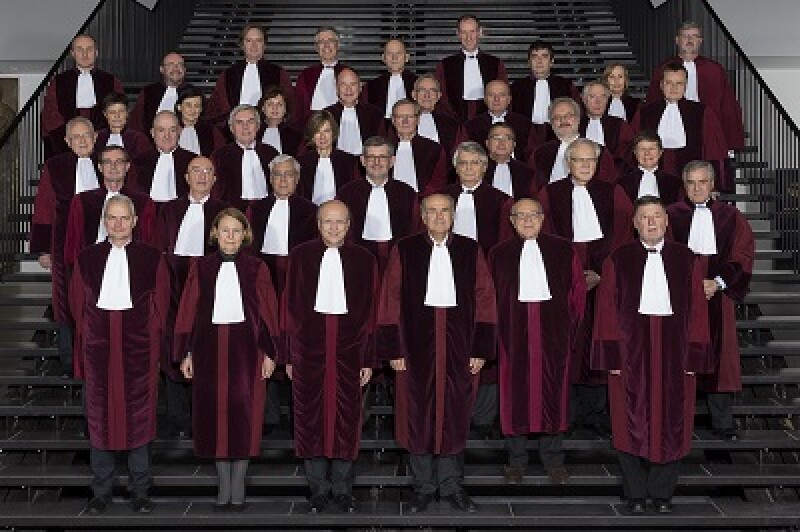
As we reported this morning, the Grand Panel of the Court (pictured right) dismissed every aspect of Spain’s dual challenge, the second time the country has queried the Unitary Patent plan. That must remove any remaining uncertainties over the legal basis of the EU scheme, even if it doesn’t (yet) persuade the Spanish government to sign up.
The opponents of the proposed system, led by the Spanish government, had some strong and sincerely held arguments against it. The Court has firmly, clearly and finally rejected these, as the Advocate General did last year.
No doubt some critics will remain unpersuaded by its judgments, will continue to criticise the proposed system and may even seek further reviews at the European Court of Human Rights.
But surely now is the time for everyone to take a deep breath and say: the CJEU has clearly spoken, much of the work is underway and patent applicants (and third parties) need certainty. Whatever your personal views about the merits of what is proposed, it is time to put them aside and try to make the system work in practice.
Above all that means: How much will it cost? When will it come into effect? And should I use the system for some or all of my patents?

We now need to see some more activity from governments and the EPO to clarify renewal, opt-out and court fees, the final rules of procedure and judicial appointments. The recent proposals on fees, while not as low as most users would like, are at least a starting point, and we understand that there may be further announcements on the other fees within the next week.
I know from speaking to in-house counsel that news on costs cannot come soon enough: many are already working on budgets that could be affected by the Unitary Patent (for example, the opt-out fees) and need to make spending decisions.
Patent practitioners in Europe also have a duty to their clients, and to the public at large, to make the system work as efficiently and fairly as possible. That includes building expertise, engaging in consultations and promoting understanding.
We’ve had several years or debate about the advantages and shortfalls of the Unitary Patent and UPC and what is proposed certainly does not please everybody. But the time for arguing is now over, and the time for planning how to make it work in practice work must begin in earnest.









